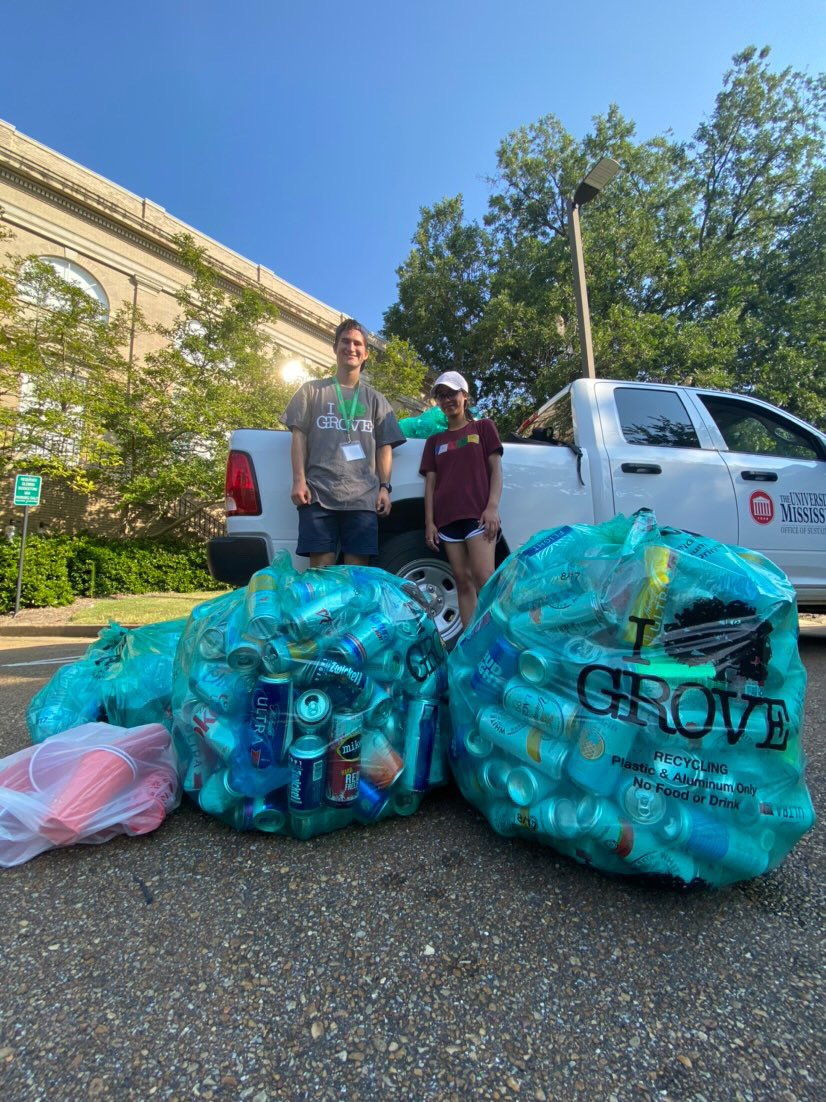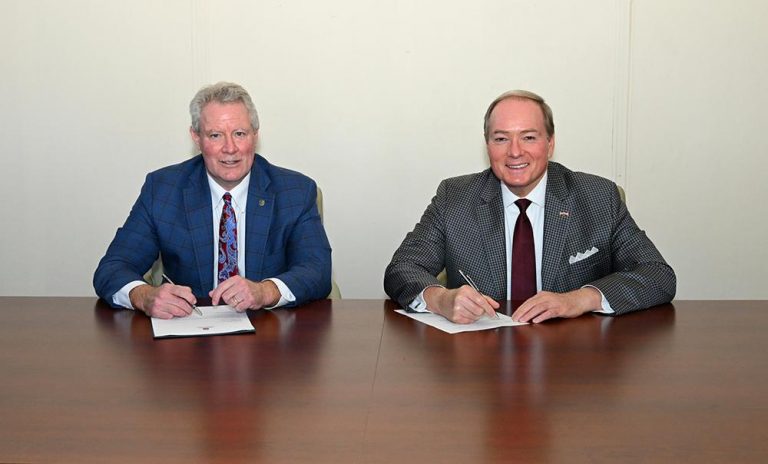
University of Mississippi volunteers load up recyclable materials collected in the Grove following a campus event. Submitted photo
Sustainability expert shares timely tips on recycling, salvaging valuables from rubbish
A old adage advises that “one man’s trash is another man’s treasure,” but a sustainability expert at the University of Mississippi is encouraging everyone to inspect their would-be garbage for possible value before placing it on the curb for pick-up.
Haste can literally make waste when it comes to how most people handle removing items they no longer use or consider worth keeping, said Kathryn Kidd, project manager in the UM Office of Sustainability. When in doubt, it pays to think before throwing it out.
“The idea of waste is a human construct and in an ideal world,” Kidd said. “Our waste could be useful to other parts of the Earth’s ecological system – no longer ‘waste’ and rather something useful somewhere else in the system.”
The average American throws away 4.6 pounds of solid waste per day. For every pound of household waste, 40-70 pounds of industrial waste was generated during its production.
“The impact human waste has made on the environment is nearly inconceivable and reaches beyond unsightly and smelly landfills,” she said. “The gas given off by landfills consists of 50% carbon dioxide, 50% methane and less than 1% other organic compounds.
“Methane is a highly potent greenhouse gas that has more than 80 times the warming power of carbon dioxide over the first 20 years it is in the atmosphere.
“The bottom line is (that) once waste makes it to the landfill, there aren’t many options to significantly reduce the environmental impact. This is why the waste management hierarchy is so important.”
Recycling is a waste management method that has some improvements over landfilling and incineration. Recycling takes what materials it can and reuses them in some way.
“Reprocessing material and returning it to the supply chain can use less energy and generate less additional waste than producing new material,” Kidd said. “Some benefit of recycling is that it uses less water and energy, releases less pollution and emits less carbon dioxide as compared to using virgin materials.
“Additionally, because many people have curbside recycling or visit locations with recycling, it is often the first contact many people have with topics of sustainability and waste management.”
However, recycling does have some intrinsic shortcomings.
“Firstly, materials collected in curbside recycling are only recycled if facilities are available and a market can be found for the materials,” Kidd said. “Recycling is energy-intensive, and it demands lengthy transport with additional energy consumption and greenhouse gas emissions.
“While there can be energy savings, recycling still consumes more energy than either reusing a product or not producing it in the first place.”
The City of Oxford offers several ways to recycle. The easiest items to recycle are cardboard, paper, mail, aluminum cans, and plastic containers. To recycle these items, sign up for curbside pickups or bring them to an Oxford Recycling Center drop-off location.
Visit the City of Oxford website for more information.
Here are some other important items to consider recycling and where to do so:
- Batteries – Ace Hardware, 662-234-3232
- Books – Lafayette County and Oxford Public Library, 662-234-5751
- Electronics – uBreakiFix, 662-236-5670
- Medicine – Oxford Police Department, 662-232-2400
- Motor Oil – AutoZone, 662-234-8288
- Glass – Door2Door Recycling, 888-564-7764
Kidd urges everyone to participate in Earth Month Egg Bowl: Glass Recycling Drive vs. Mississippi State, which will take place from 2 to 6 pm April 13, 2023, in the Jackson Avenue Center parking lot. It is hosted by the UM Office of Sustainability and Door2Door Recycling.
“The City of Oxford Recycling Center will be happy to help individuals determine the best way to dispose of their unwanted waste and provide information about the value of these items,” Kidd said.
For more information, contact the recycling center at 662-232-2745 or agonce@oxfordms.net.
By Edwin B. Smith





